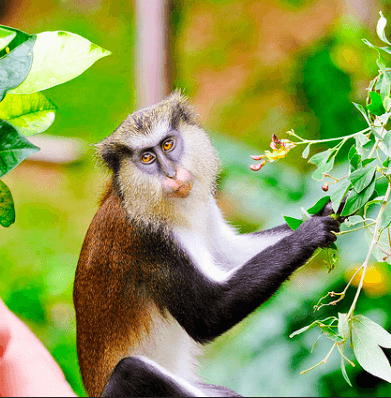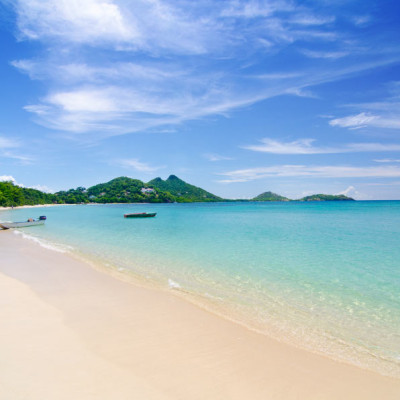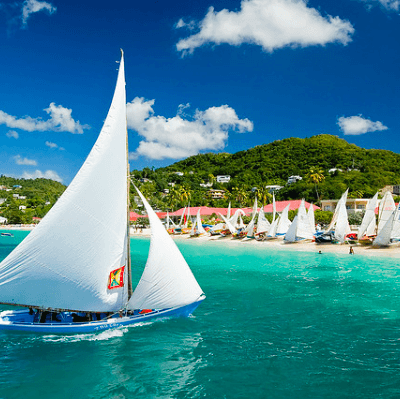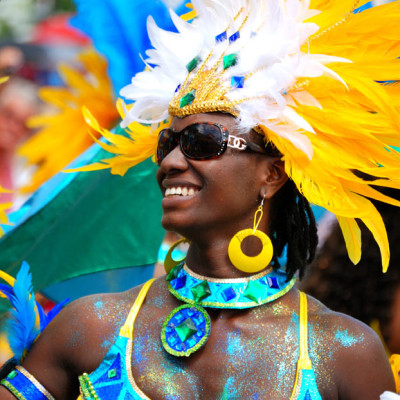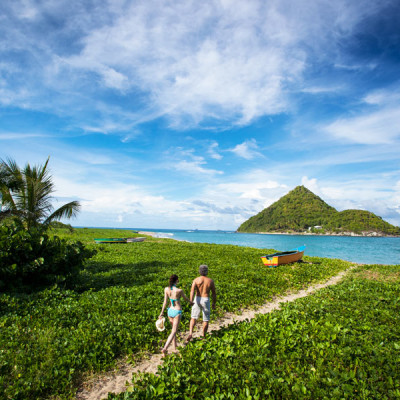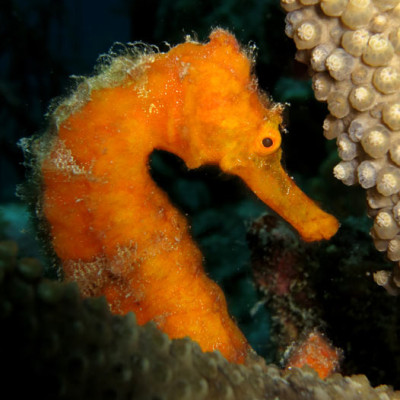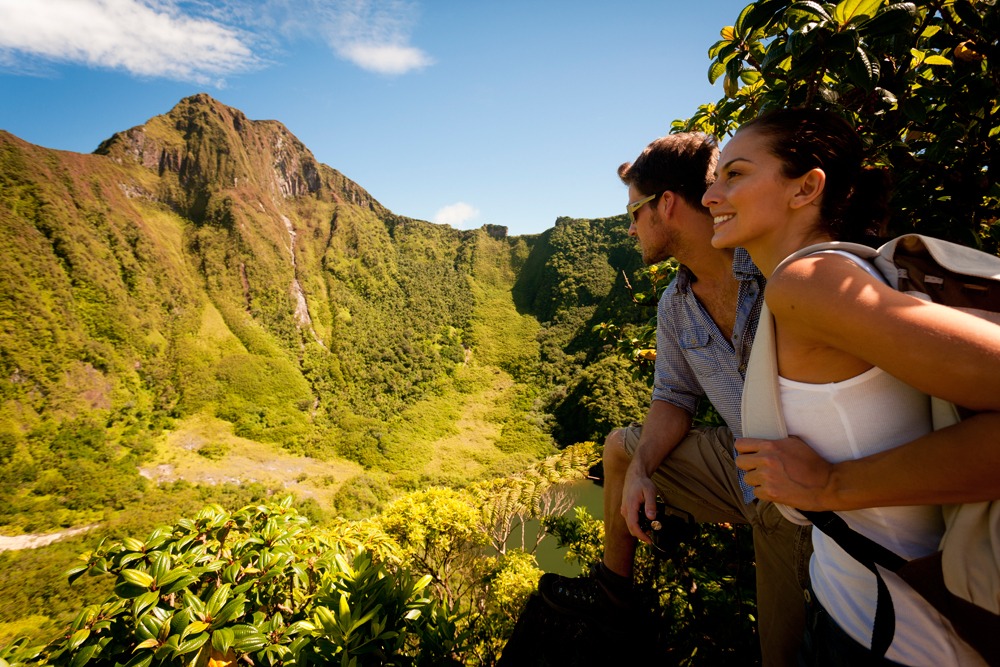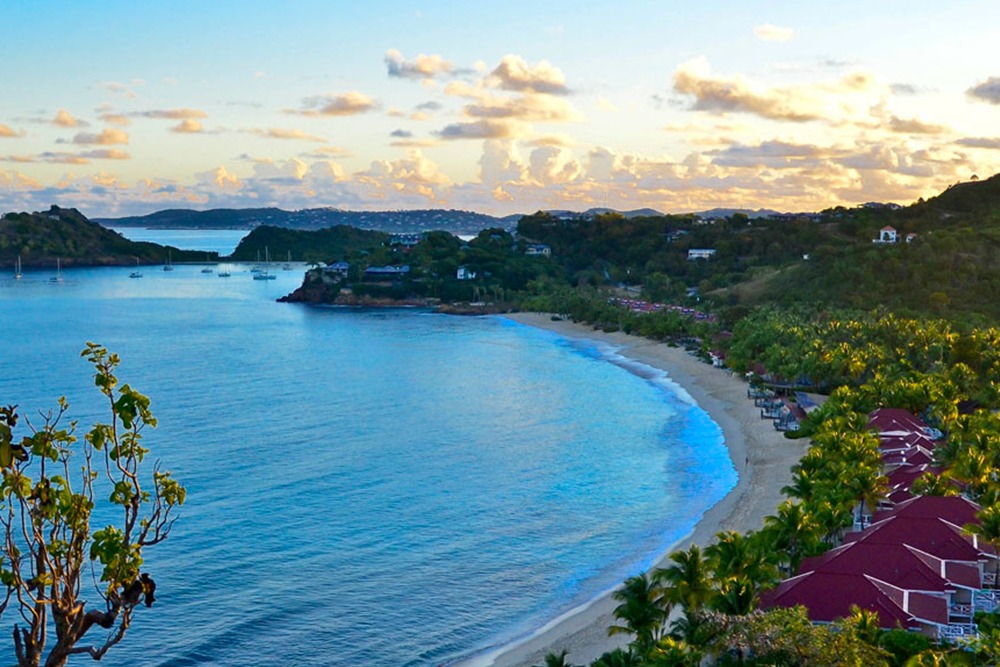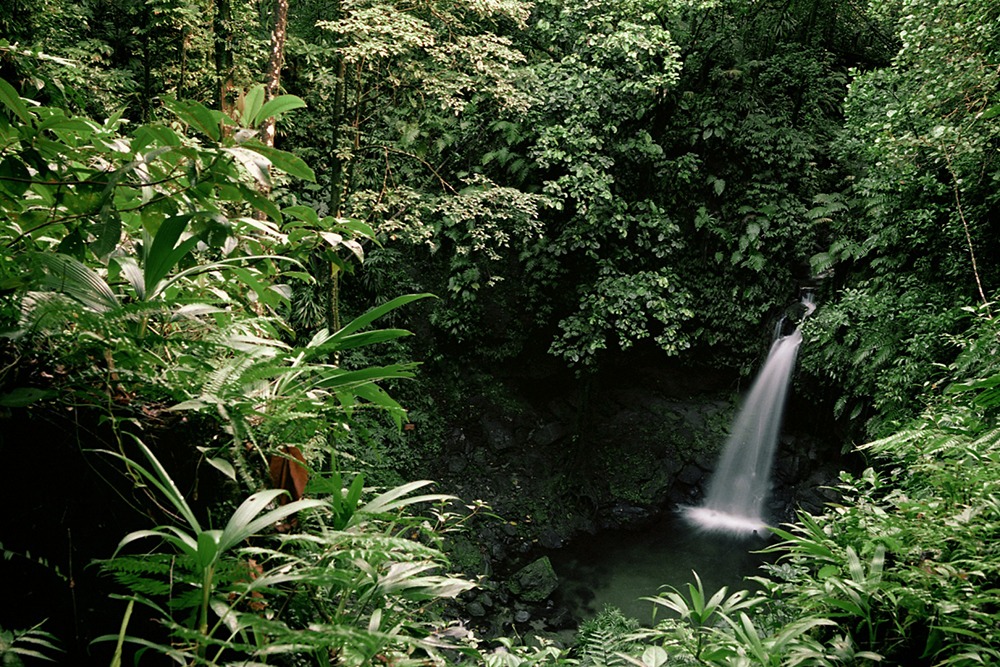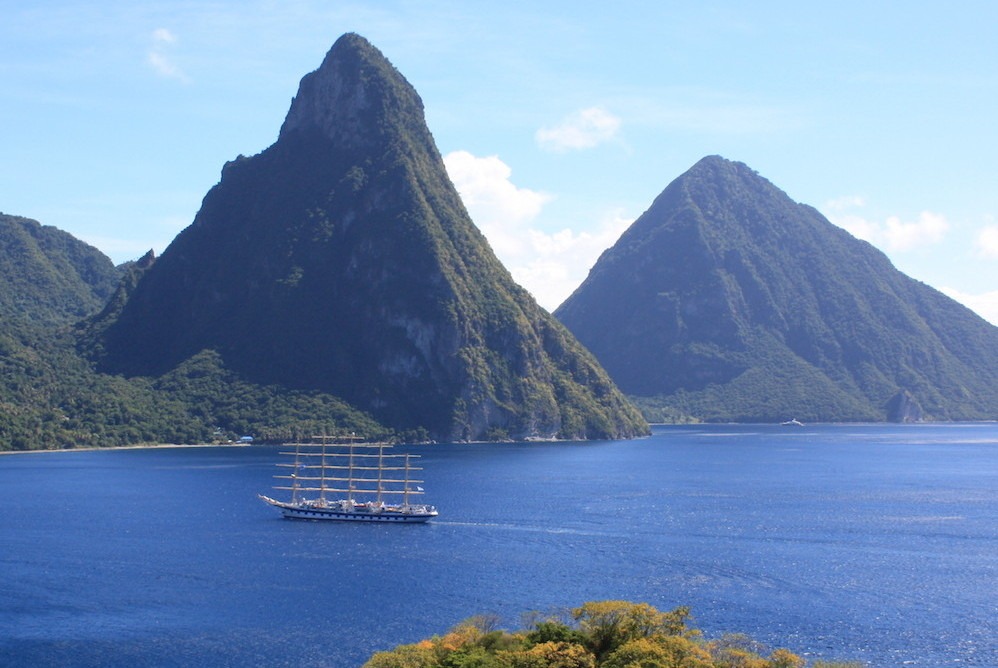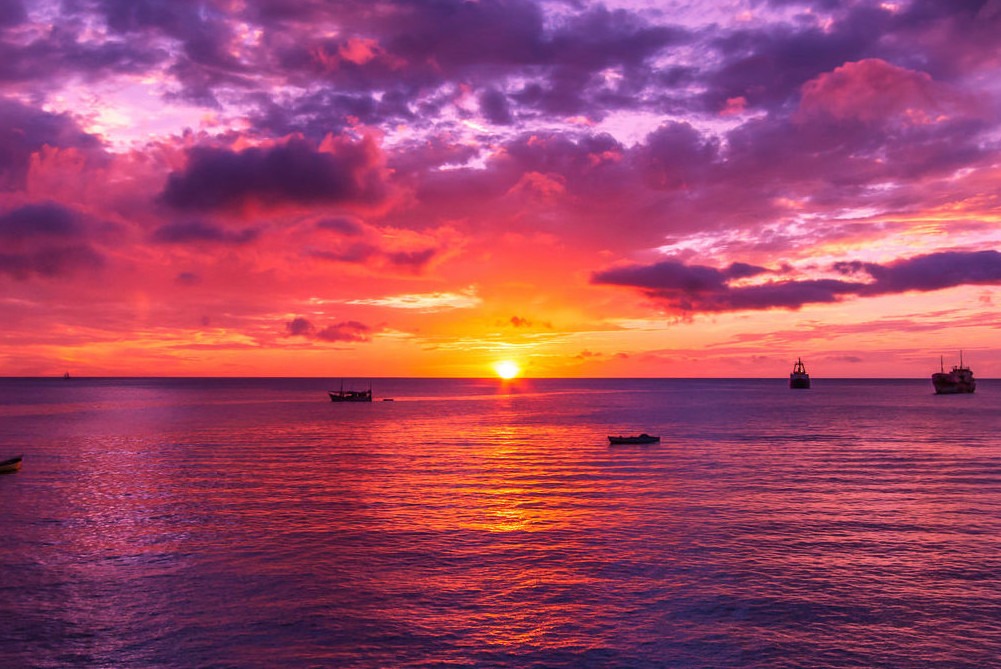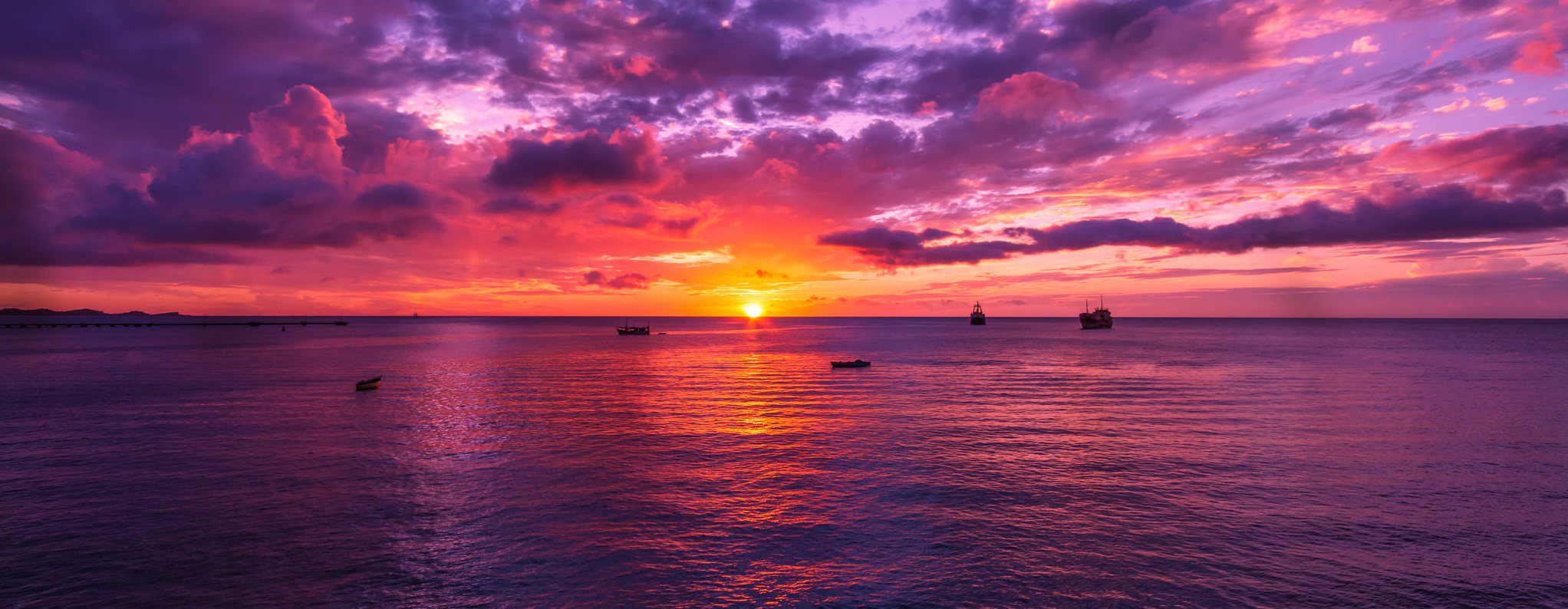
Grenada, known as the ‘Isle of Spice,’ is one of the most magnificent islands in the West Indies. Unspoilt and exotic, it astounds visitors with its wildly jagged mountain peaks, hidden coves, spice plantations, and lush verdant rainforests. Its beaches are idyllic, with white or golden sand, palm trees, crystal clear azure sea and the delicate aroma of the island’s native spices. In addition to its scenery, Grenada offers culture, fun, and friendliness typical of the authentic Caribbean life – making Grenada the perfect place in which to live, work and play.
Grenada was traditionally inhabited by Carib Indians who migrated from the South American mainland. The island was originally known as Camerhougue, but Christopher Columbus renamed it ‘Concepción Island’ when he visited it in 1498. Successive Spanish sailors found it to be so evocative of Andalucía’s green mountain scenery that they named it after the city of Granada.
Island Facts
Location
- This tropical Island is at the southern end of the Caribbean and the beautiful Grenadine Islands. Southwest of Barbados at 12 07 North and 61 40 West Grenada is Outside the Hurricane Belt. The total land area including all three islands is 344 km2 (133 sq. miles) with 121 km of coastline.
Geography
- The nation of Grenada, measuring 344 km2, is composed of three key islands: Grenada and its sister islands Carriacou and Petite Martinique. Each is beautiful and rich in culture, historic sites, fresh culinary delights, and much more. Carriacou is only a 90-minute boat ride from St. George’s, the nation’s capital city.
Language
- English is the official language, French patois is also spoken locally.
Climate
- Grenada’s proximity to the Equator ensures a year-round tropical climate, with average temperatures ranging between 23 and 28 °C. Its cooling trade winds offer very comfortable conditions.
Government
- Grenada was a French and British colony, but gained independence from the United Kingdom on February 7, 1974. The government is Constitutional monarchy, led the Prime Minister. The head of state is still the British monarch, represented on the island by a Governor General.
- Member of the Commonwealth of Nations, the Organization of American States (OAS), the Caribbean Community (CARICOM), and the Organization of Eastern Caribbean States (OECS).
- Permanent member of the United Nations
Currency
- The Eastern Caribbean Dollar (XCD$) is pegged to the US Dollar at US$1.00 XCD = XCD$2.70.
- US bills are accepted by most stores and businesses and change is given in E.C. currency.
Economy
- No foreign income, wealth, gift, inheritance, or capital gains taxes.
- In the last twenty years, Grenada’s economy has shifted from agriculture to the provision of services. Its largest exports include nutmeg, of which Grenada is the world’s second-largest producer, cocoa beans, fish, and wheat flours. Core export destinations include the United States, Switzerland, Germany, the Netherlands, and Canada. Other spices produced for export include mace, cloves, and cinnamon. Exported fruits and vegetables include bananas and citrus fruits.
- Grenada’s tourism sector is greatly expanding, with the island continuing to take more and more shares of the market for Caribbean tourism. Much of this expansion is due to foreign direct investment, as foreign businesspersons choose to invest in Grenada’s growing popularity with visitors and leisure travelers. The nation relies heavily on tourism to earn foreign currency.
Culture
- Grenada was traditionally inhabited by Carib Indians who migrated from the South American mainland. The island was originally known as Camerhougue, but Christopher Columbus renamed it ‘Concepción Island’ when he visited it in 1498. Successive Spanish sailors found it to be so evocative of Andalucía’s green mountain scenery that they named it after the city of Granada.
Accessibility
- Grenada’s main airport, the Maurice Bishop International Airport (GND), is located only seven miles south of the nation’s capital. The airport can be directly accessed from USA, Canada, Europe as well as other major airports.
- The state-of-the-art airport accommodates international flights including British Airways, Virgin, Monarch, Delta, Caribbean Airlines, LIAT, American Airlines, Air Canada, inter island flights and all private jets. Grenada is well served from North America and Europe. Private charter services are available. A VIP airport service is available upon request.
- Visa-free travel to more than 115 countries
Distinctions
- Grenada’s population is highly educated and has a very high literacy rate. St George’s University hosts 6,000 students from over 140 countries, offers faculties of Medicine and Veterinary Science, and has been operating for thirty-five years. In addition, a full medical teaching hospital will be developed in the near future.
- Large-scale tourism is a recent phenomenon, and Grenada is largely undiscovered, unspoilt and full of opportunity.
Contact us today for a complimentary consultation.




